Linux System Programming - A programmers/Practical Approach
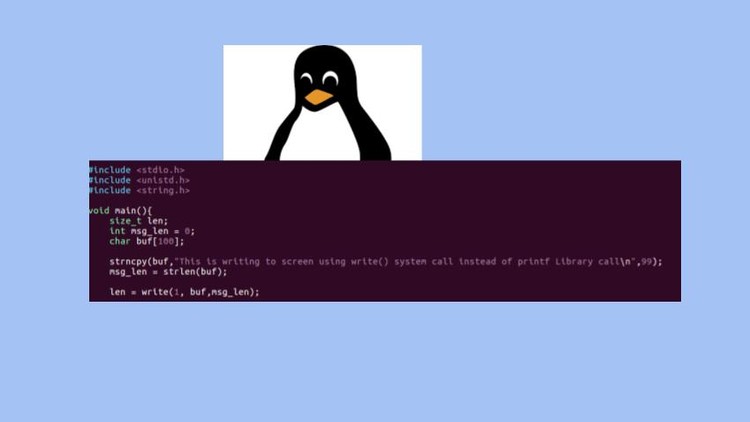
Why take this course?
🚀 Course Title: Linux System Programming - A Practical Approach
🎓 Course Headline: Master Files, Memory, and Process Management on Linux
About This Course:
This course is a deep dive into the world of Linux system programming, crafted by industry-working professionals. It's an intermediate-level program that goes beyond teaching just the 'C' language—it bridges the gap between academic knowledge and real-world Linux applications. The course culminates with a Bonus section featuring a collection of student questions and their solutions, providing a dynamic learning experience that evolves with community interactions. 🌱
Who is this course for?
This course is tailored for beginners to intermediate professionals looking to gain a comprehensive understanding of Linux system programming. It's perfect for those aspiring to delve into Linux systems design and development or any career related to Linux systems, ensuring you're well-prepared for the challenges ahead. 👨💻👩💻
Outcomes of the Course:
By completing this course, you will achieve a SOLID understanding of Linux system programming, making you well-equipped to:
- Ace technical interviews with confidence.
- Contribute effectively as an individual contributor in your projects.
- Be on par with, or even surpass, the expertise of your experienced colleagues. 🚀
Course Contents:
Dive into a hands-on learning experience with these key topics, all with a focus on practical programming skills:
-
Introduction to Linux Systems
- Understanding Linux architecture.
- Writing and compiling your first 'Hello World' program using GCC.
-
System Calls and Standard Library Function Calls
- Learning the distinction between kernel and user mode in Linux.
-
File Operations
- Mastering file operations like open(), close(), read(), write(), lseek().
- Understanding blocking and non-blocking calls, atomic operations, and handling race conditions.
-
Memory Management and Virtual Memory
- Exploring stack segments, code segments, heap segments, data segments.
- Managing virtual memory and understanding memory allocation functions (Malloc(), calloc(), Realloc(), etc.).
-
Process Management
- Process creation, termination, and management with fork() and exec().
- Handling command line arguments for processes.
-
Signals
- Implementing signal handling in your programs and managing signal actions.
-
Posix Threads
- Creating and managing threads, including joinable and detachable threads.
-
Thread Synchronisation
- Utilizing mutexes, condition variables, and ensuring thread safety.
-
Inter Process Communication (IPC)
- Working with pipes, FIFO, message queues, semaphores, and shared memory.
📚 Note: This course primarily focuses on Linux system programming concepts, leveraging the Ubuntu distribution as the platform for practical demonstrations. Get ready to embark on a journey that will transform your understanding of Linux and set you up for success in the field of Linux systems design and development! 🐧
Enroll now and unlock the full potential of your programming skills with Linux System Programming - A Practical Approach. Let's dive into the Linux universe together! 🖥️✨
Course Gallery
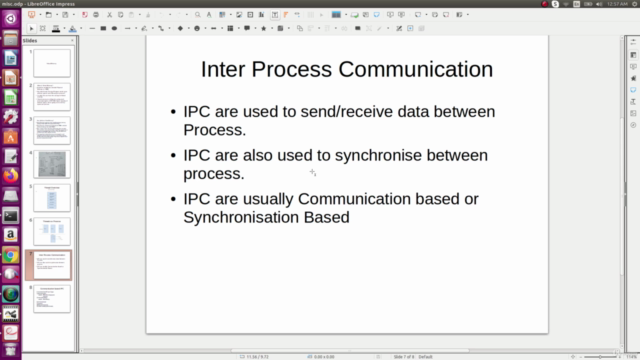
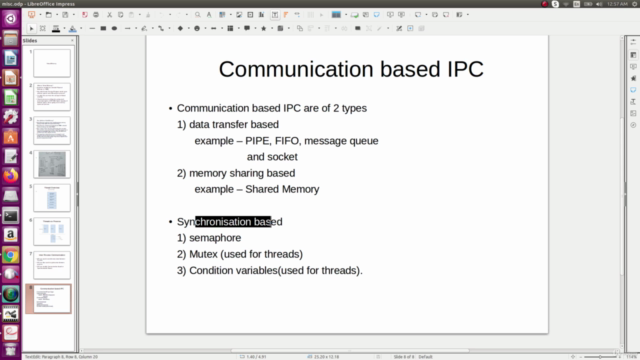
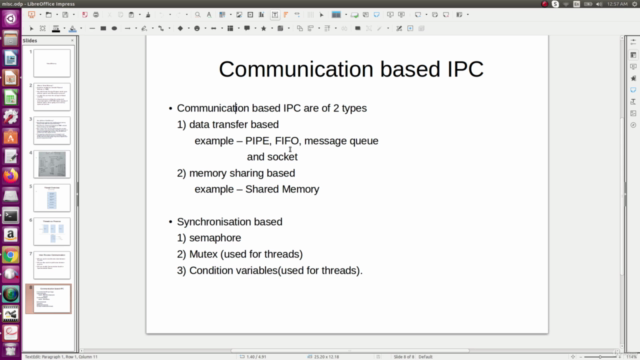
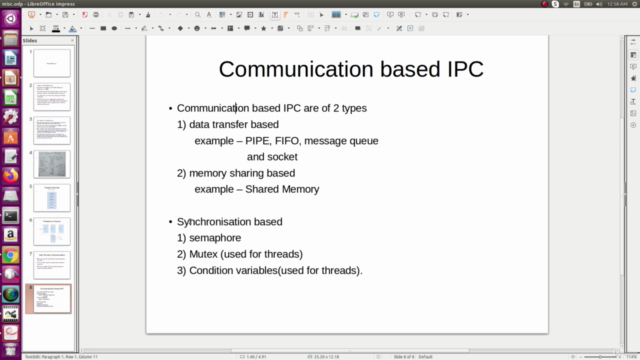
Loading charts...